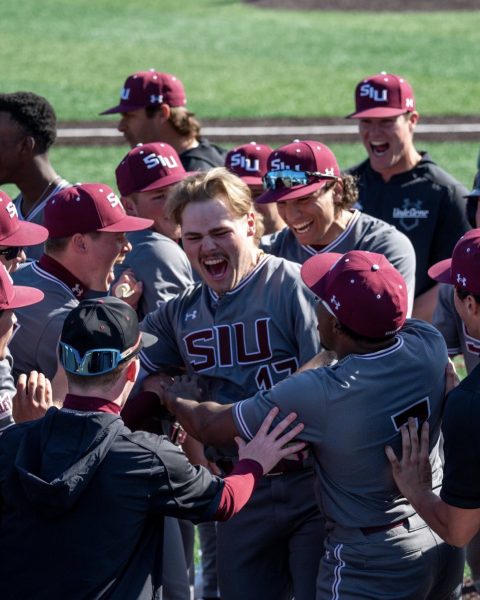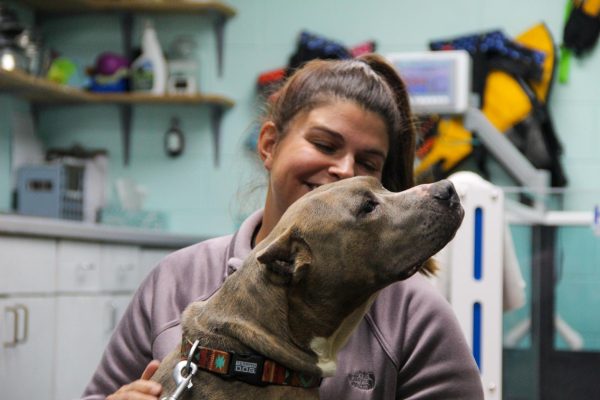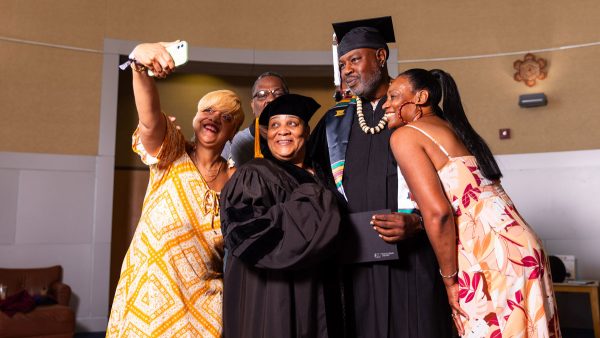Athletes reflect on Black History at Southern Illinois and around the country
Black athletes are the face of American sports. Take a look at NBA player LeBron James, women’s tennis player Serena Williams or NFL quarterback Patrick Mahomes.
Black athletes have meant so much to every sport, throughout history. Per league stats, Black people make up 57.5% of the National Football League along with 74.2% of the National Basketball Association. There are many prominent Black athletes in other leagues like Major League Baseball and Major League Soccer.
However, it wasn’t always this way. For players like Walt “Clyde” Frazier, an Southern Illinois university (SIU) alumni, his team in Carbondale was considered revolutionary for featuring so many black athletes.
Advertisement
Sophomore guard Chris Cross said Frazier’s teams in the late 60’s and the 2007 NCAA tournament team paved the way for athletes like himself to find success at Southern Illinois University-Carbondale.
It’s not just players from the past. Black athletes are becoming 21st century superstars in U.S. media. Many are using their platform to help push community development through programs and fundraisers.
Cross said it’s crucial for all black athletes to be role models and use their platform to make social change.
“It’s very important for black athletes to have a voice because they need to use their platform to address other issues in the world,” Cross said.
Junior running back JaVon Williams said athletes like James, Serena Williams and former NBA superstar Shaquille O’Neal inspire him.
“They show the character of Black athletes through history and in our world today. They built a foundation for young Black athletes and were an inspiration to them,” Williams said.
Recently, former SIU alum Gwen Berry made headlines when she turned away from the flag during the Olympic trials, which took place in the summer of 2021. The anthem was played as she was receiving her bronze medal.
Advertisement*
Williams said he applauds her standing up for what she believed in.
“In situations where people want to express their feelings and beliefs I’m always for that,” Williams said.
The event sparked national controversy. Some said it was shameful, others thought it was an impressive display of courage from the former Saluki.
“From what I have come across, when people kneel or look away during the anthem they aren’t shunning the U.S. or disrespecting the military,” Brown said. “It’s completely separate from that so I hope that people look back on that with an open mind.”
Williams said he also looks up to former Black athlete Ricky Garrett from Southern Illinois University.
“Ricky came to Carbondale and gave us a perspective on how to carry yourself, how to perform to your greatest, and how to be an African-American in an impactful way,” Williams said.
Many Black athletes have succeeded at SIU. Football alumni like Jeremy Chinn (current cornerback for the Carolina Panthers) and MyCole Pruitt (current tight end for the Tennessee Titans) have also paved the way for Black athletes at Southern Illinois. Both have made millions playing in the NFL.
Freshman guard Tyranny Brown said she heard stories about former all-time points leader Caerteasha Macklin coming back and scrimmaging against the team before COVID. She said Macklin gives her hope that she can reach those heights.
“I think it’s great that some of our Black athletes are allowed to come back and give back to the community that served them,” Brown said, “It’s definitely big for me being a freshman who is a Black athlete. I look up to Macklin who was, previously, the leading scorer.”
However, all players said there is more work to be done in communities across the U.S. to help ensure future generations of Black athletes.
“Everyday we’re growing in many aspects as a country, but I’m almost certain in saying that we have a long way to go,” Brown said.
Williams said, “As an African-American, I would love to see more opportunities given to our culture. But you can see that work being done now, and it’s not gonna happen overnight. It’s not just about African-American’s, but about everybody being provided the same opportunities.”
“It also comes down to Black people helping each other in athletics. We need to have black people vouching for other black people, helping them get to where they need to be,” Cross said,
Despite the Salukis’ long line of successful Black athletes over the years, the school holds a very small number of Black head coaches across all sports.
Williams said it could be advantageous for Southern Illinois to hire more Black coaches in the future.
“I feel that the number of African-American coaches is growing and have been given more opportunities to go out there and prove how good of a coach they really are,” Williams said.
Cross said it could even help Southern Illinois in terms of recruiting.
“I think some athletes would appreciate seeing a face similar to their own. I personally don’t see it as an issue, but I could see it swaying some college athletes,” Cross said.
Brown said, although the diversity of the coaches across sports could be questioned, the leaders Southern Illinois has put in place for the athletic department have done wonders for Back athletes.
“The coaches that we have always been very supportive of their Black athletes and always put them in a position to succeed. I don’t see that going away anytime soon,” Brown said.
Sports Reporter Cole Daily can be reached at cdaily@dailyegyptian.com or on Twitter at cdaily_de. To stay up to date on all your southern Illinois news, follow the Daily Egyptian on Facebook and Twitter
Advertisement














